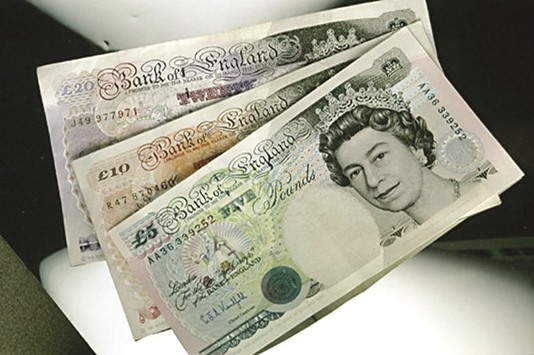European shares rose yesterday as Britain’s central bank hinted at interest rate cuts to limit the impact of the country’s vote to quit the EU, sending the British pound tumbling against the euro.
After a day of further political drama, London shares closed strongly higher with a late-session flurry, after Bank of England chief Mark Carney sought to reassure financial markets in the wake of last week’s Brexit vote.
Interest rate cuts usually boost a stock market because of hopes for rekindled growth and higher consumer spending.
At the same time, they make holding a currency less attractive because of weaker returns.
As well as London, shares in Paris and Frankfurt rallied for a third straight day, rebounding from a heavy sell-off on the heels of Britain’s shock EU decision that has even seen London wipe out all its post-vote losses.
London’s FTSE 100 was up 2.3% at 6,504.33 9 points, Frankfurt’s DAX 30 was up 0.7% at 9,680.09 points, Paris’ CAC 40 was up 1.0% at 4,237.48 points and the Eurostoxx 50 was up 1.15% at 2,864.74 points, at close.
Capital Economics economist Julian Jessop said “several plausible reasons” were behind why equity prices had recovered after the Brexit decision, some of which may be temporary.
“More positively, though, we think that the markets are right to recognise that Brexit, and especially some form of Brexit-lite, would not be as damaging as so many were arguing ahead of the referendum,” he said in a note.
The British pound, meanwhile, fell to a two-year low against the euro after Carney’s announcement.
It was 83.8 pence per euro at 1515 GMT, surpassing the previous low reached on March 25, 2014.
The pound largely held on to most of its gains versus the dollar as other higher-yielding, riskier, currencies benefited from hope that the fallout from last yesterday’s referendum will not be as bad as feared.
The pound slid to $1.3234 but was still up from the 31-year-lows of $1.3121 it touched on Monday.
The International Monetary Fund yesterday said that Britain’s shock EU vote had created uncertainty that poses a major threat to the global economy.
IMF spokesman Gerry Rice called on European leaders and other policymakers to take “decisive” actions that could lower the threat.
Further deepening the uncertainty, London’s former mayor Boris Johnson, who spearheaded the Brexit campaign, yesterday unexpectedly bowed out of the race to take over from Prime Minister David Cameron, an announcement greeted by a brief spike in the value of the pound.

The pound slid to $1.3234 yesterday, but was still up from the 31-year-lows of $1.3121 it touched on Monday.
